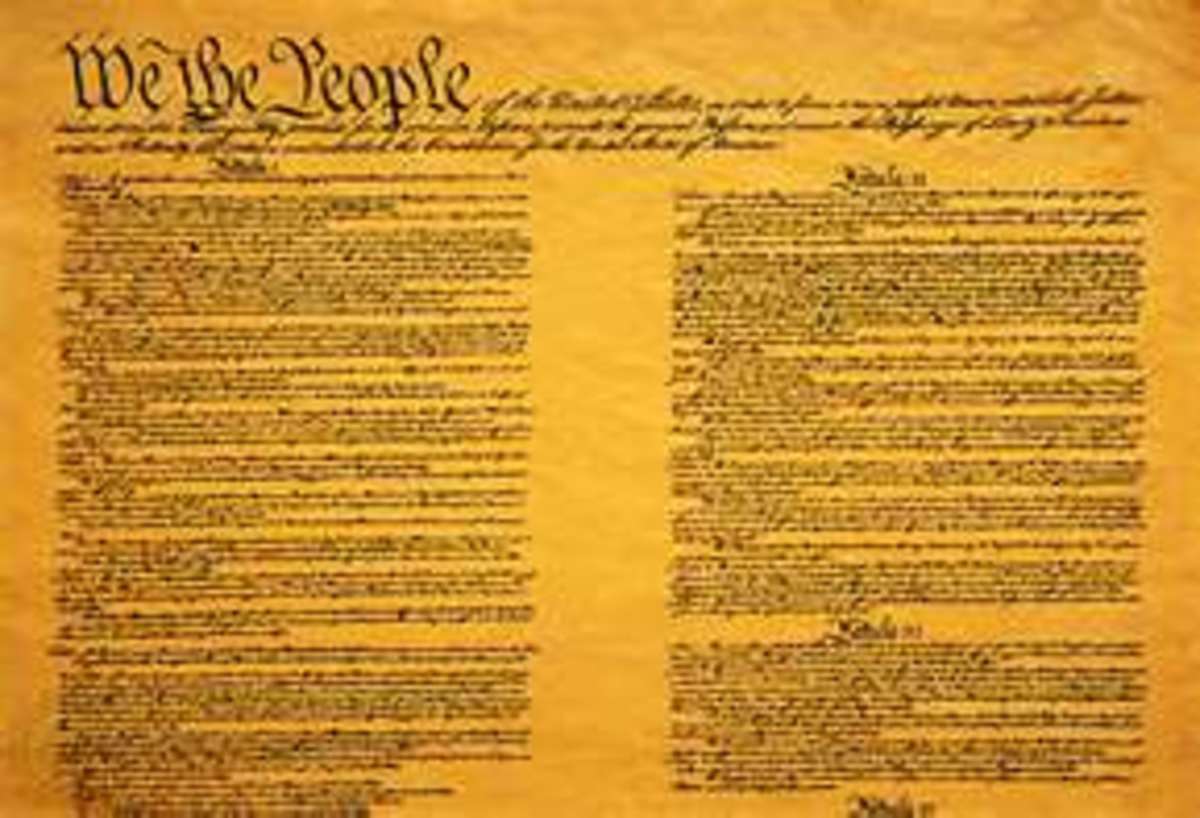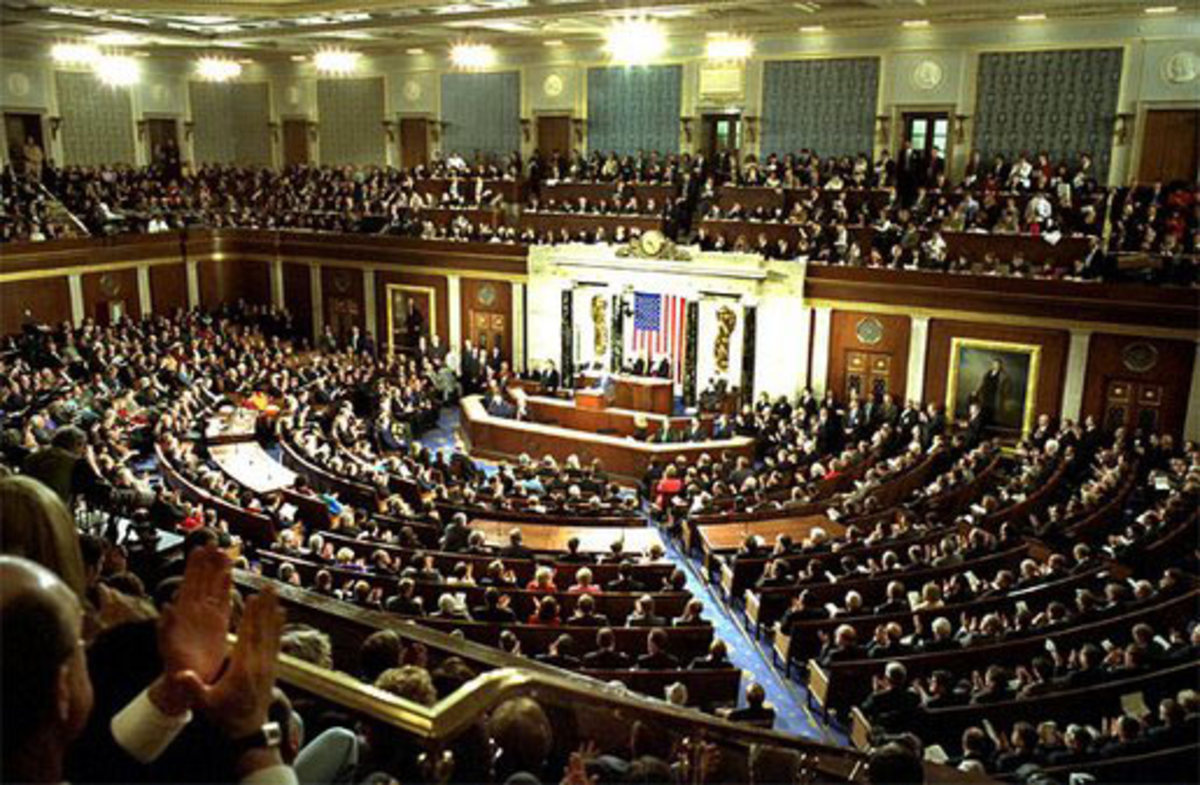What is the nullification movement?
The nullification movement is gaining some ground throughout the country. For those who do not know the meaning of this movement it involves states taking back control of their resources from the federal government. Today the federal government is responsible for making laws within their constitutional authority but more often than not laws, rules, regulations and executive orders are outside their constitutional jurisdiction. This type of activity amounts to the current culture of overreach by the federal government. States are beginning to take a stand against this activity and it is within their authority and responsibility to do so.
Our rights engrained in the Constitution are constantly under attack through the actions of the federal government. Some of these actions if not most of them costs the taxpayers of the individual states financial resources which could be put to better use. The action or actions to redistribute these resources involves nullification legislation. This movement is or has become a political force to stem the flow of centralized power from the federal government. The impact of legislation to curtail federal government actions is the advancement of the Constitution and our liberties.
Nullification actions are not necessarily about legislative actions but can and have involved lawsuits in our judicial system such as the one involving the executive order issued involving immigration policy. This action costs or will costs states not only in terms of financial resources but also in manpower. States have enough responsibilities to their citizens not only as a result of the Constitution but also their state Constitution.
It is important to note that every action at least at this point legislation involving actions of the federal government does not involve every decision. States realize that they have a responsibility to keep their citizens safe and secure and some actions which are within legislative authority make sense and will not be ignored by the states. It is also a fact that some states if not all of them have similar laws or regulations which they enforce. The power of the federal government has increased over the years including creating executive departments for which there is no direct constitutional authority. This however does not mean some of these departments do not have a purposed but that purpose should be in terms of establishing guidelines not imposing rules and regulations on society as a whole.
The question as to why now this movement is taking hold amounts to increased dissatisfaction with the government and the impact of citizens everywhere. One such example is the latest proposed action at this time is the identification of the Internet as a public utility by the FCC. The Internet belongs to everyone around the world and no one government has the jurisdiction to impose additional costs for users. The action involves much more than costs it also involves the government making decisions about activities for which states have the jurisdiction.
The nullification movement also has support from a Supreme Court decision involving the philosophy of the anti-commandeering doctrine. It is a principle which declares that the federal government cannot require or force states to expend resources or manpower to help it carry out it acts or programs. As we all know there new rules and regulations are constantly being generated by the various departments and agencies of the executive branch some of which are questionable and some are clearly an overreach of the federal government jurisdiction. The doctrine of
anti-commandering gives support to a lawsuit by numerous states that the executive order on immigration is causing states to expend resources which the government has not authority to impose.
The doctrine cited in the preceding paragraph came into play through a Supreme Court Case dating back to 1892 (Prigg v Pennsylvania), 1997(Printz v United States), 1992 (New York v United States) and in 2012 (Independent Business v Sebelius). The combined decisions in these cases established a legal doctrine that the federal government has no authority to force states to cooperate in implementing or enforcing its acts. Simply refusing to support unconstitutional actions of the federal government such as NSA spying, indefinite detention, unconstitutional violations of the 2nd amendment states have the power to render these actions unenforceable. It is not the responsibility of the states to provide resources to enforce actions of the federal government especially those which are considered in violation of the Constitution.
Granted in some cases this can be interpreted differently dependent upon who is making the interpretation. In other cases the violations are clear. The nullification movement is a combination of actions/decisions being made at the state government level to reign in the overreach of the federal government including unconstitutional decisions by the executive department. In other cases involving laws passed by Congress states would be required to fight the laws in court.
It is hoped that this movement will wake up the federal government in relation to their actions and the feelings of citizens across the country through their elected state officials. The results of the 2014 election sent a strong message to the federal government and if the culture of decisions does not change the impact of the 2016 election may send an even stronger message. Individuals now in Congress and individuals who are in charge of executive departments and agencies must remember their tenure is not permanent and can be changed through the results of the next presidential election. Congress needs to take back control of the rules, regulations and executive orders now plaguing the country. The examples in the previous sentence are never permanent as they legally considered null and void upon the change in the individuals who are responsible for making the decisions that are both wrong and unpopular with the voting public.








